PriorityChef Knife Sharpener In-depth Review
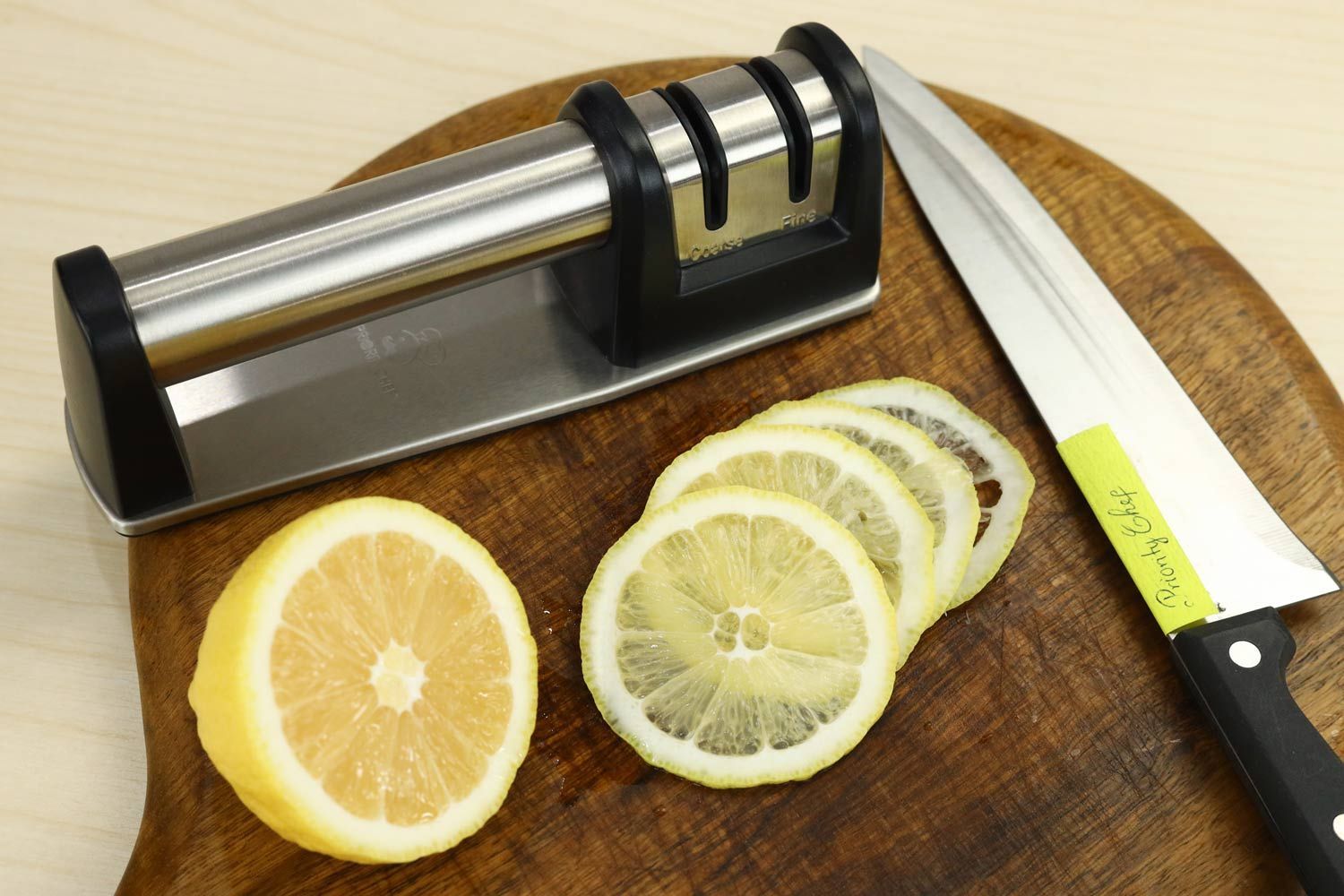
Overall Verdict
The Priority Chef is a very capable manual sharpener: It’s quick to create a keen edge but doesn’t shave too much material off your knife. Its straightforward design and modest height allow for a safe and simple sharpening experience. We have doubts about the effectiveness and durability of its base pad, but that’s not a make-or-break detail.
If you’re looking for an affordable, effective manual sharpener that’s easy to use and offers consistent results, the Priority Chef is it.
Things We Like
- Modest height, low center of gravity
- Full, flat base
- Gimmick-free design
- Great edge retention
Things We Don’t Like
- Cheap base pad
- Small slot openings
The Priority Chef manual knife sharpener is sold at an affordable price, and its simplistic appearance suggests mediocre performance. We put it to the test without much hope, but were surprised to see it sweep the scores in all critical categories.
While its build leaves something to be desired, similar to our top choice, the Cubikook CS-T01, we can argue that the designers put their effort into the areas that count the most.
8.7 Performance
The Priority Chef sharpened blades quickly while creating a decent edge and shaving off very little material from our test knife. Our test knife came out as keen as when brand-new. The device is undoubtedly one of the top performers among the ones we’ve tested, and a very well-rounded one.
8.8 Sharpening Time to Cut a Lemon
Our blunt test knife emerged sharp and keen after 75 seconds of sharpening with the Priority Chef. In fact, it was sharp enough to slice through a lemon in one go after just 60 seconds on the Coarse stage; the extra 15 seconds served only to refine the edge and, consequently, the cut.
Your mileage may vary depending on the conditions of your knives and the hardness of their steel. However, in most cases, you won’t need more than 30 seconds to rejuvenate a dull knife to a serviceable level.
8.0 Maximum Sharpness Achieved
Even after 6 minutes, our test knife needed two, sometimes three rather heavy swipes to cut through beef tendon. It had no trouble with chicken breast with runny skin and fat, though. Ripe tomatoes, similarly, were a piece of cake.
Since our Control knife was at sharpness Level 8 when brand new, we could say the Priority Chef sharpener can bring it back to factory sharpness after 6 minutes. Of course, you may see different results with knives that are made of particularly hard steel.
7.5 Edge Smoothness
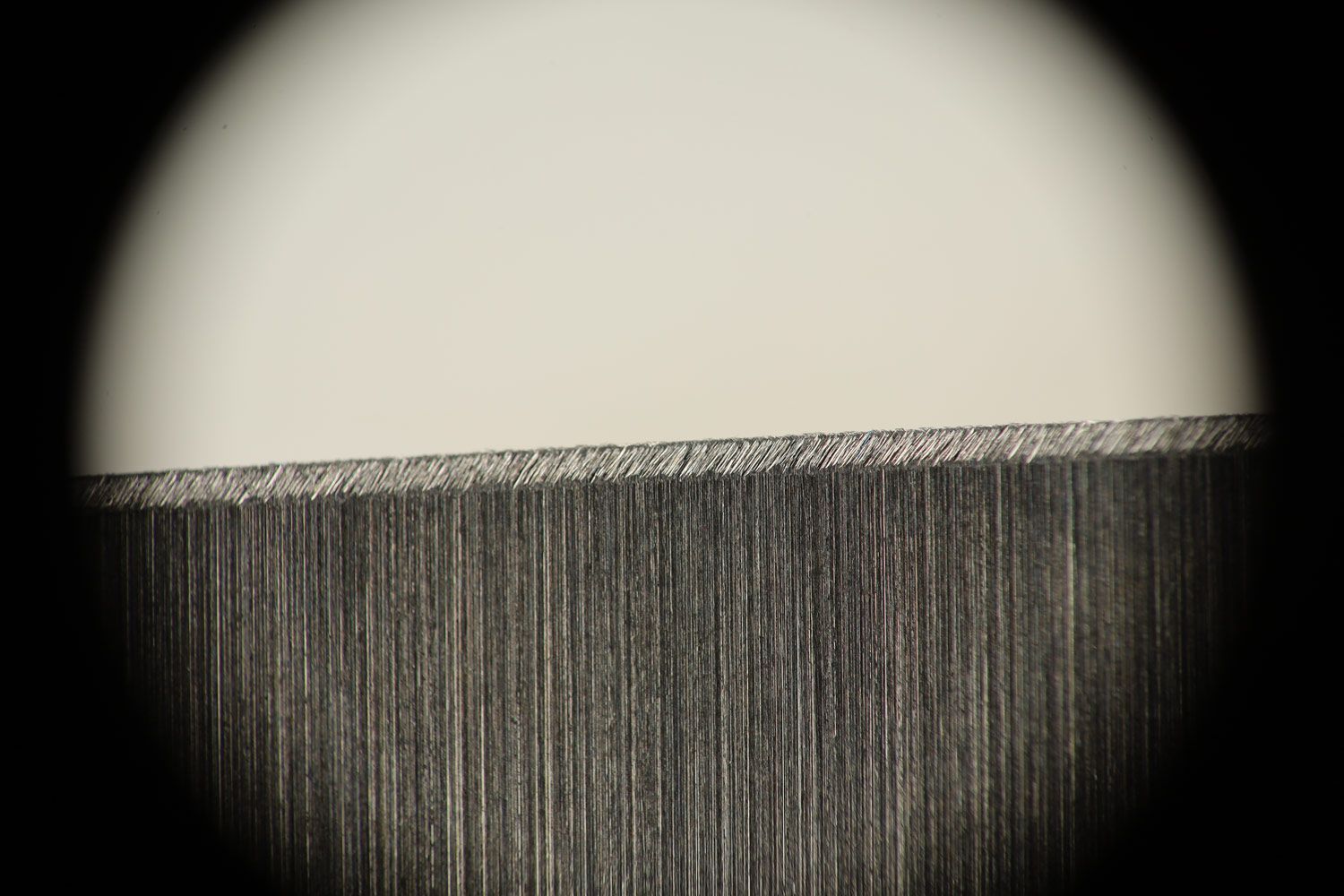
Unlike the V-shaped abrasive blades found on most other pull-through devices, the Priority Chef’s abrasive discs create short, nearly vertical grooves along the edge — and the ceramic fine stage didn’t do much to refine them. We also detected chips and burrs — albeit very small ones — where the edge is narrowest. That suggested that the sharpening discs do not directly contact that part.
That being said, the Priority Chef still created a much finer edge than did its other disc-based cousin, the Chef’s Choice 4643. The Chef’s Choice created a secondary edge, but it left the primary edge completely untouched.
10 Material Retention
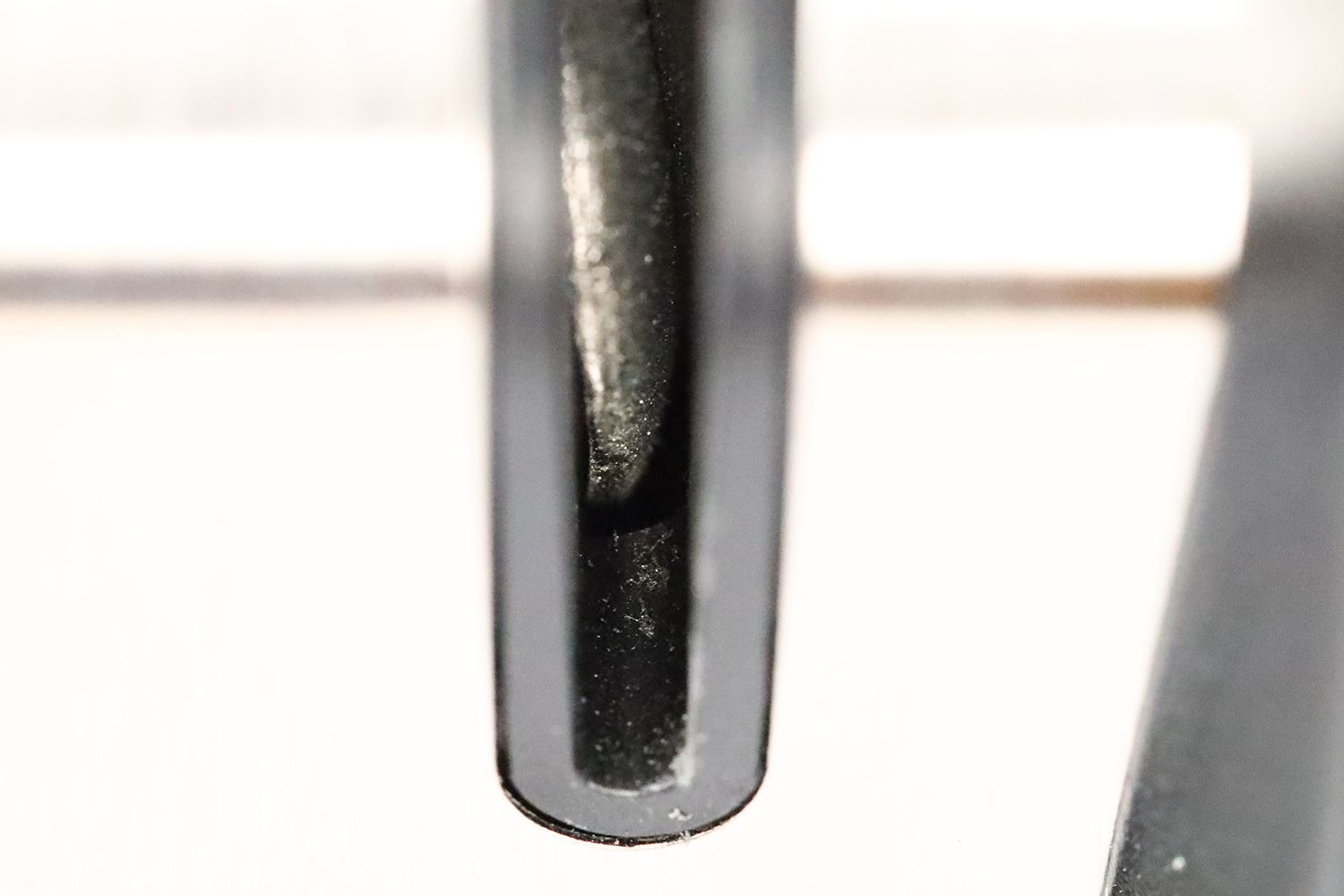

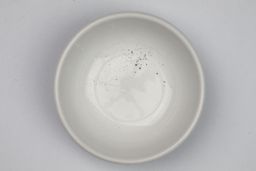
For the speed and level of sharpness it can achieve, we were impressed by how little material the Priority Chef removed from the knife after one minute of sharpening. The only debris was dust and tiny chips rather than long curls of swarf, like some others. The device seems to only shave off what’s really necessary to make the edge sharp.
7.8 Design
There’s not much to write home about the Priority Chef’s construction and design. It’s simple and functional, and we love that it has a sturdy working section, a full, flat base, and low center of gravity.
The biggest shortcoming seems to be the low-quality pad under the base. We’d also prefer something with more grip, though the existing one doesn’t ruin the experience.
Dimensions
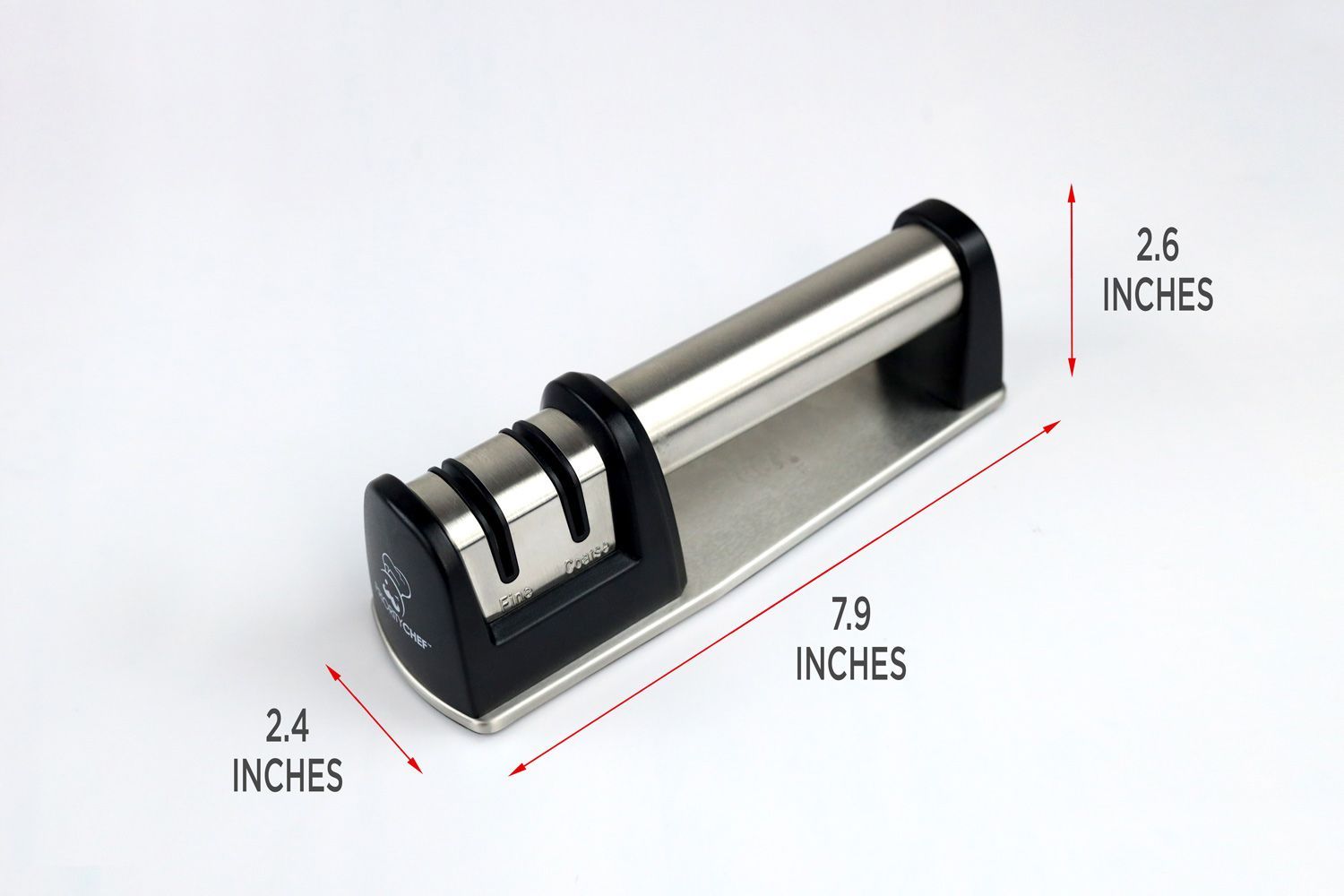
7.9 Build Quality
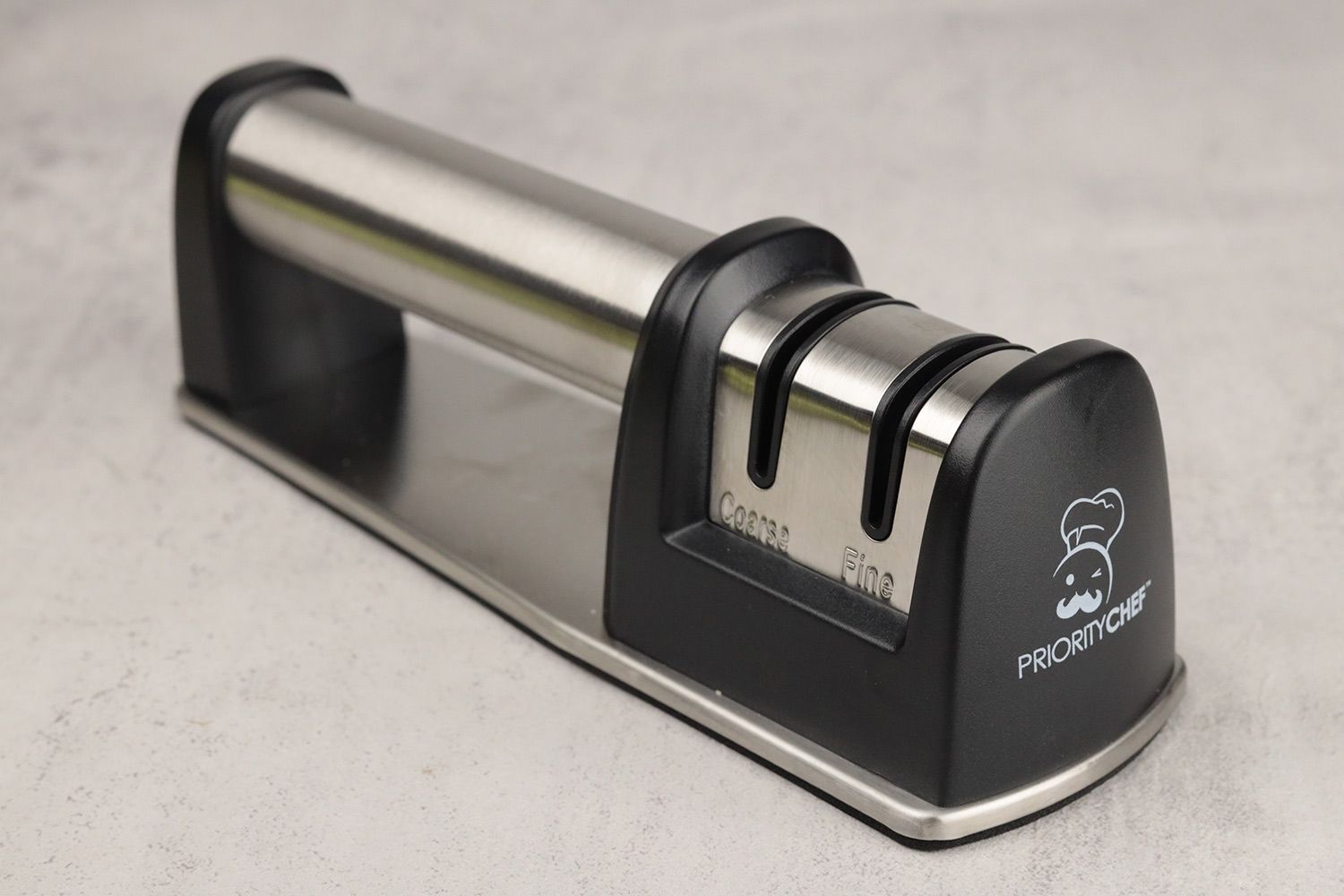

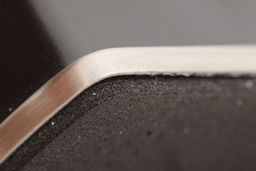
The Priority Chef has a minimalist design with stainless steel and ABS plastic parts. Although more oriented toward functionality than aesthetics, the components fit together well and sport pleasant finishes. The only complaint we have is with the base pad that’s made of a low-quality material and doesn’t fit snugly into the stainless steel frame.
In the Box
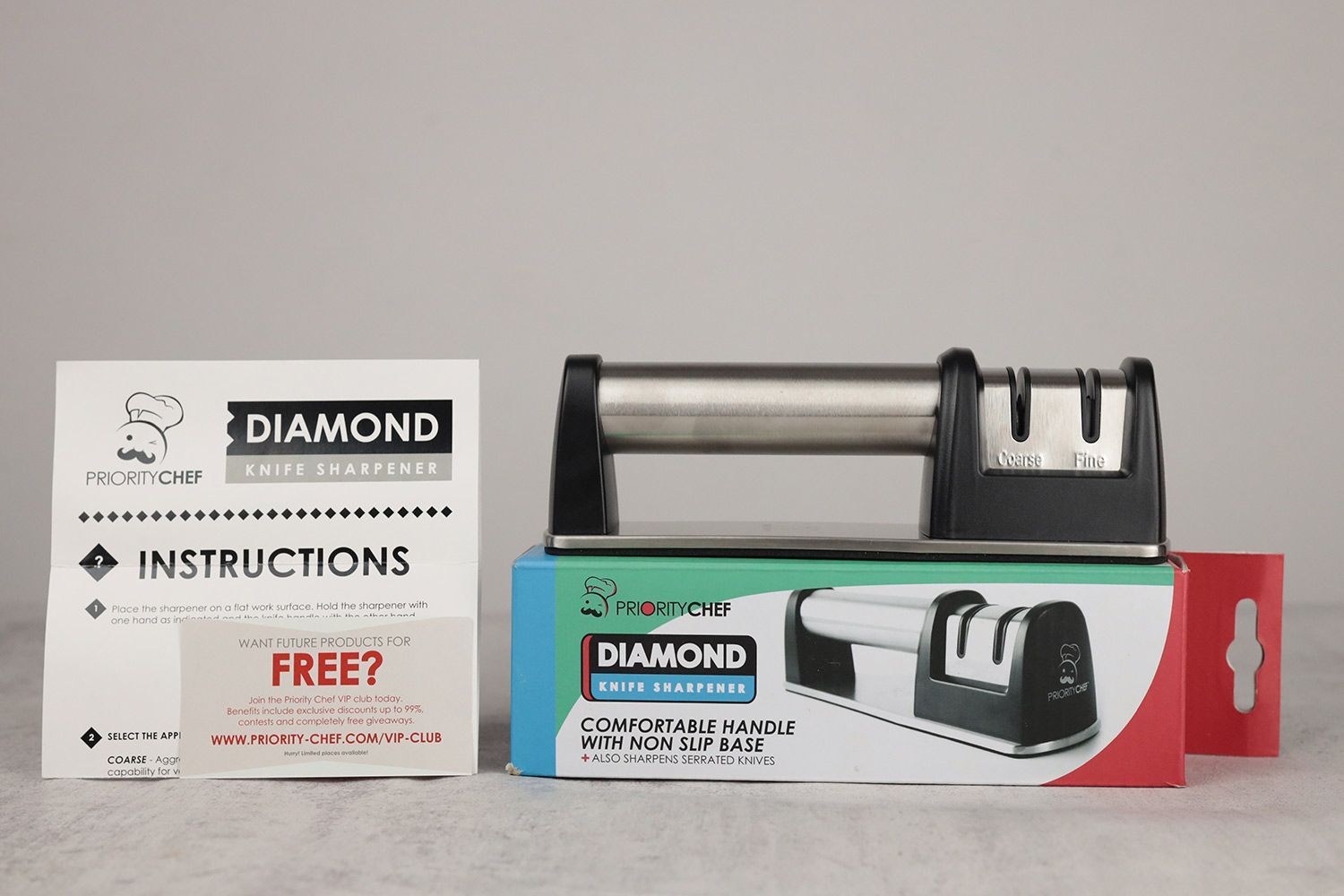
- The Priority Chef manual sharpener
- Instruction manual
- Promotional leaflet
The Priority Chef comes in a colorful cardboard box. The package also includes instructions on how to sharpen with the device, plus care and storage tips.
Working Section
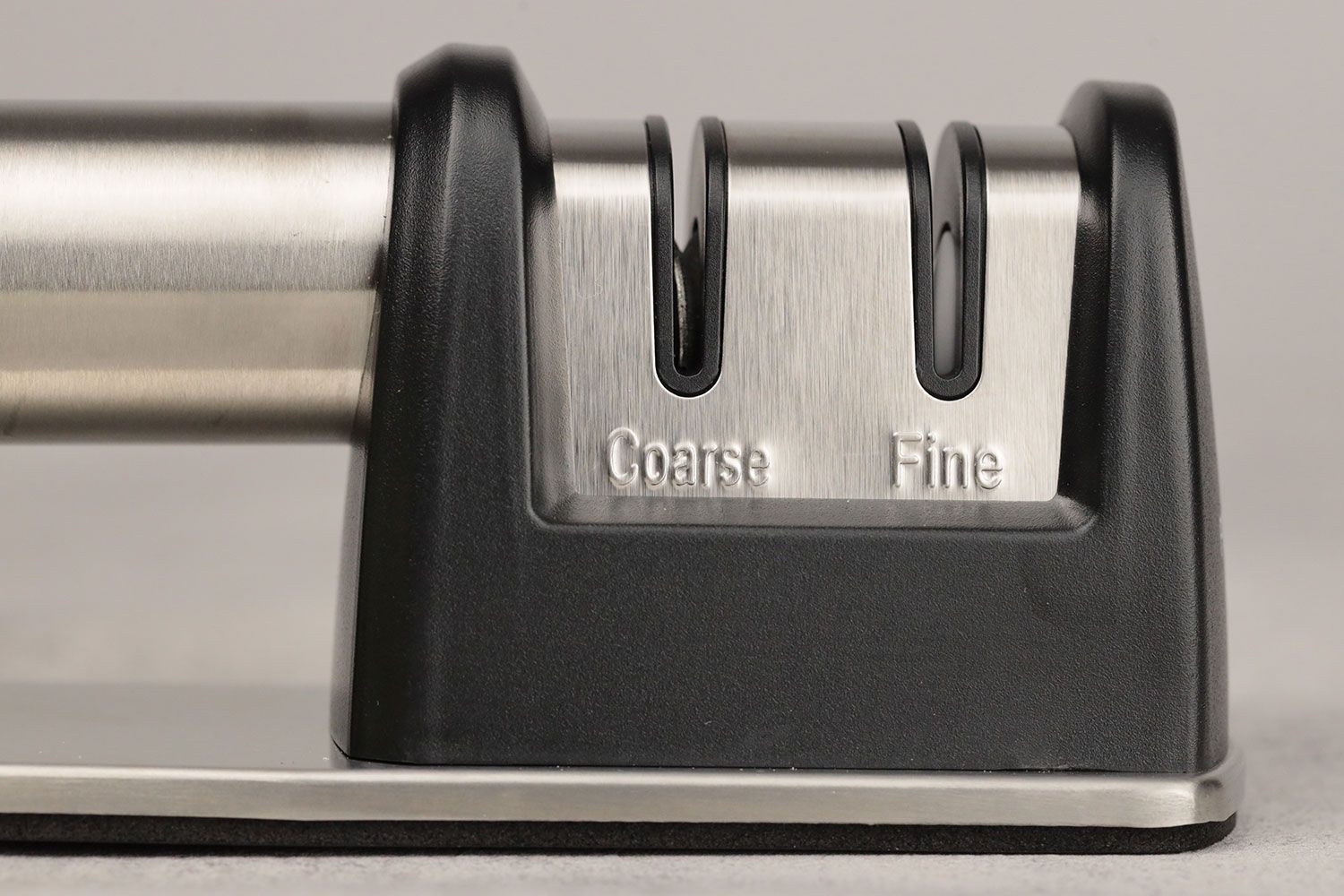
The Priority Chef sharpener has a simple working section with one diamond-coated disc and one ceramic disc for sharpening and honing your knives, respectively. Each is labeled below the slot on either side — it’s equally simple whether you’re left- or right-handed.
Base
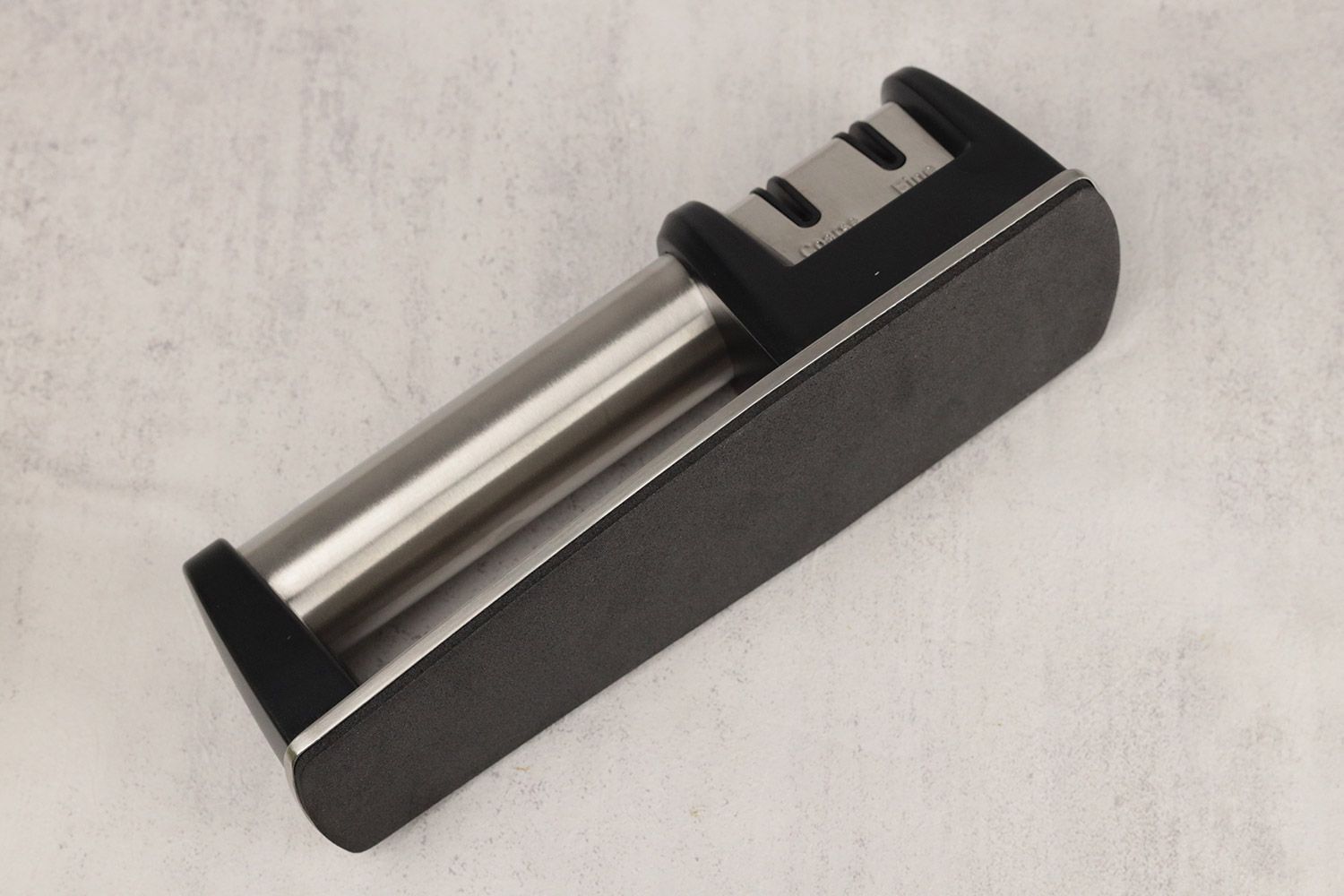
While we love that it’s low and wide, the base is actually the Priority Chef’s least effective component. It’s a stainless steel plate housing a sponge-like pad that feels cheap and is prone to tearing. The pad adds almost no weight or friction, and we suspect that it will come apart long before anything else.
7.5 Grip
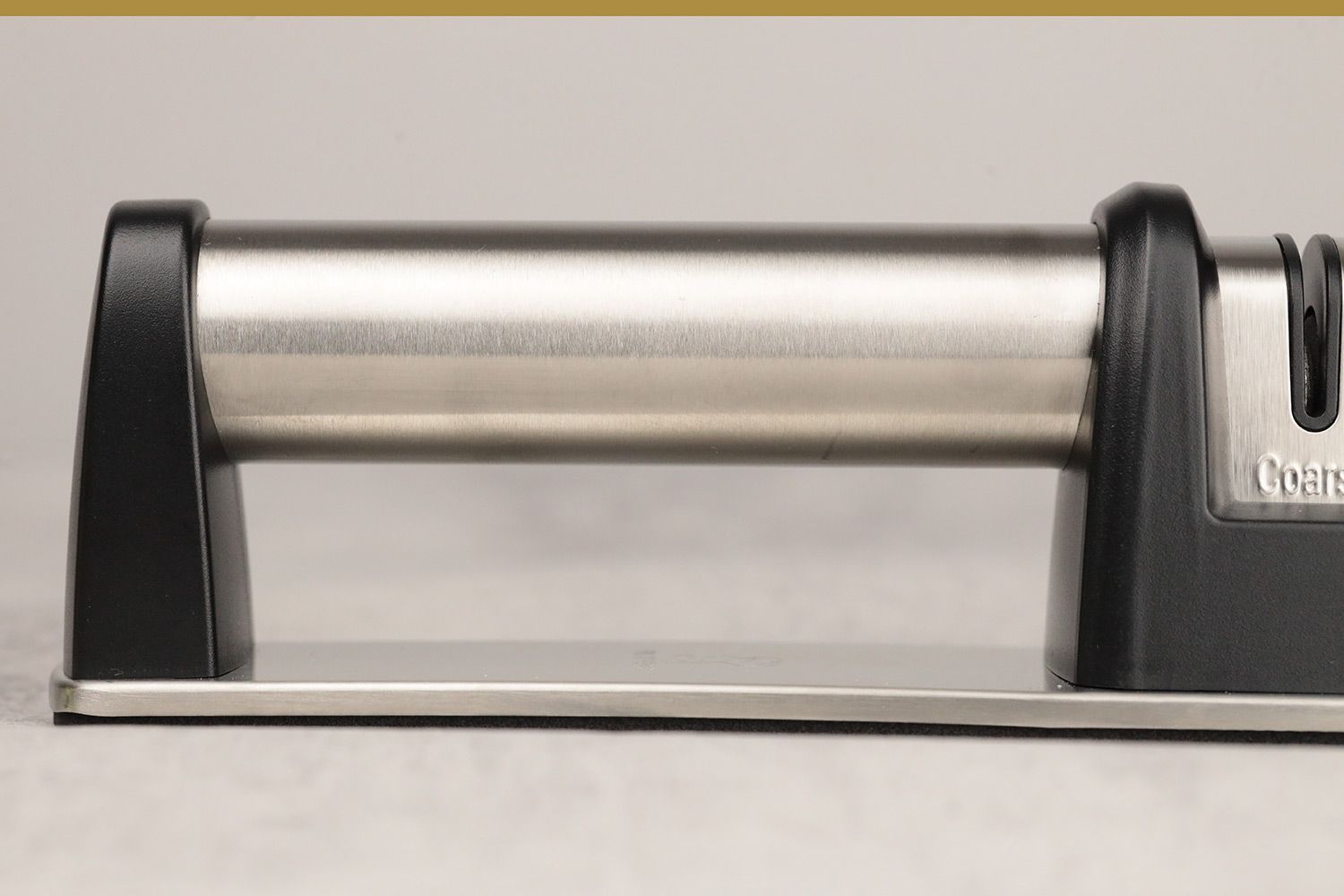
Unlike most other devices, the grip of the Priority Chef is basically a pipe that’s attached to the device via a plastic framework. The stainless steel is easy to clean but can be cold to the touch and feel slippery if your hand is wet or greasy. Other than that, we couldn’t find a problem with it. The low center of gravity really helps, so we never had to employ excessive force to keep the device in place.
8.2 Ease of Use
With a straightforward design and slot arrangement, the learning curve is very mild with the Priority Chef. Its low center of gravity and wide, flat base offers good balance and stability.
However, its narrow slot openings might be a bit challenging to work with. And the stainless steel grip may not be so ideal if your hands are sweaty or oily.
10 Slot Arrangement
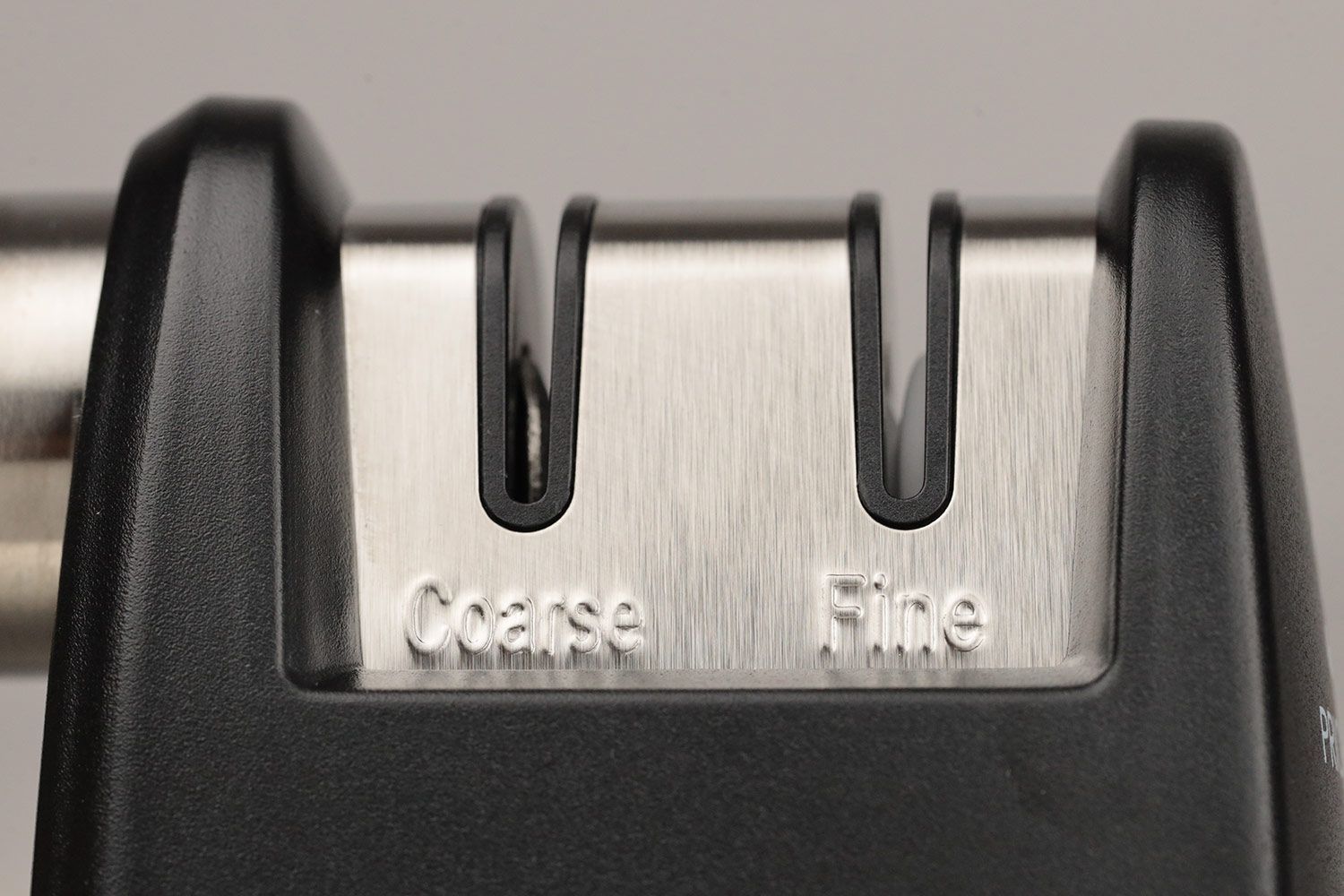
The device has only two progressive slots. Their relative coarseness is embossed right underneath on both sides of the working section. That eliminates any guesswork or confusion during sharpening. Both work at the same bevel angle and are not adjustable, so the Priority Chef may not be right for all your knives.
7.0 Insertion
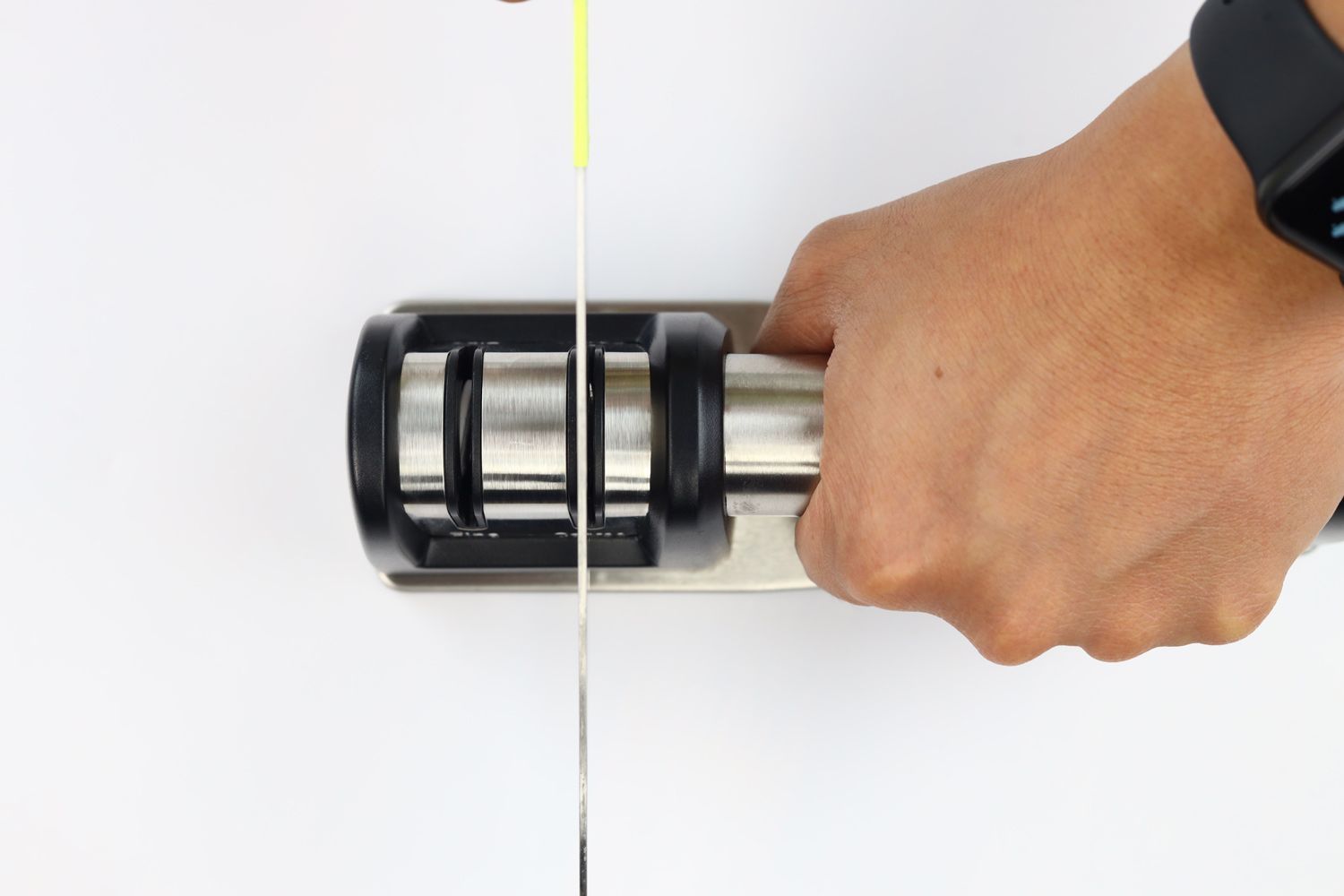
The Priority Chef has some of the narrowest slot openings among the devices we’ve tested. While this may help keep the blade aligned, it does make inserting the knife a little stressful.
Luckily, with a large grip and a raised plastic frame, you’re unlikely to cut your supporting hand.
8.5 Pulling Through
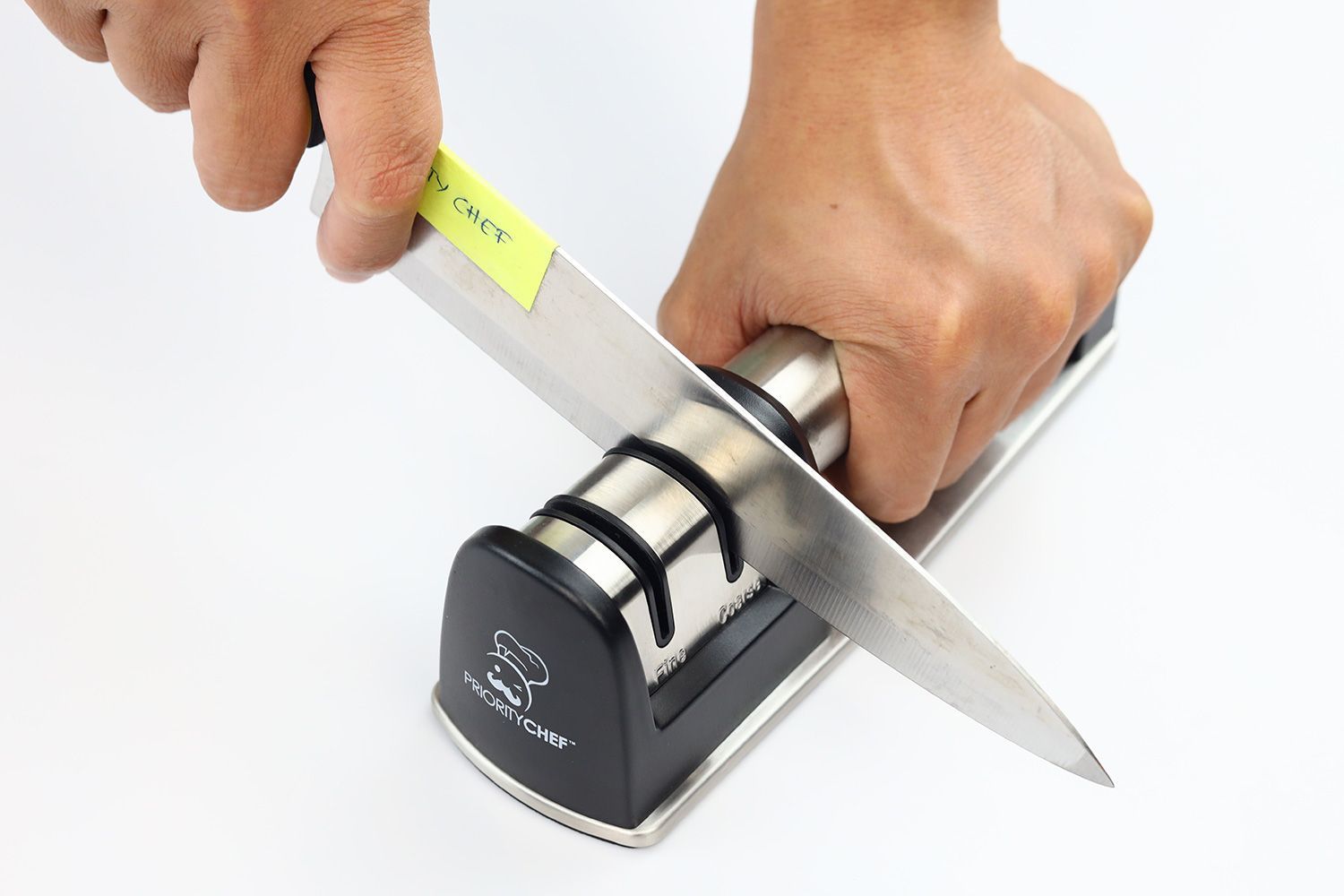
Our test knives slid through the Priority Chef with ease every single time: Both sharpening discs offer a firm and steady brace. The knife tip does cut into the U-shape frame from time to time, but because you don’t have to push downwards while pulling through, the contact is mild and should not affect the knife edge.
8.0 Stability on a Clean Surface
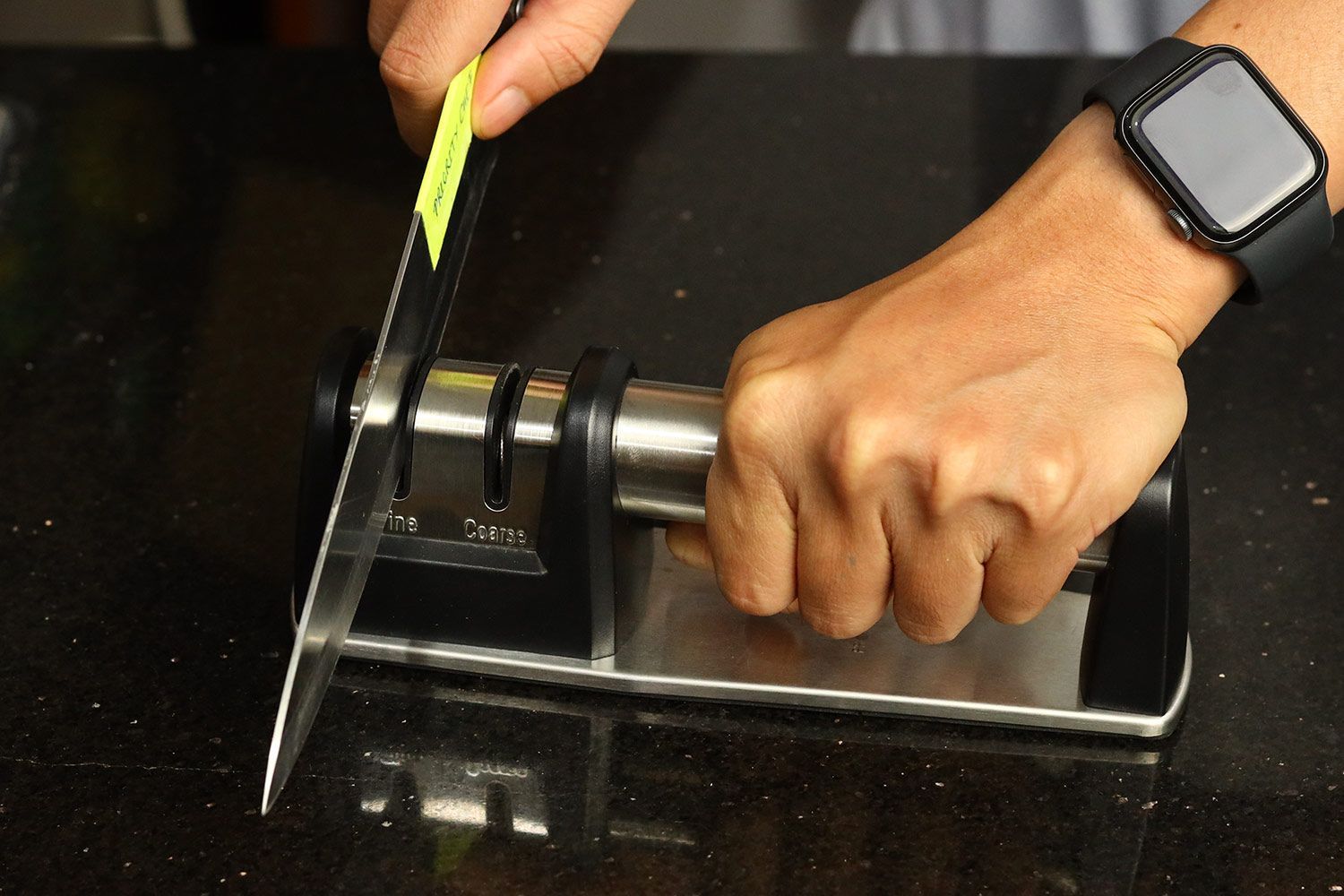
With a low center of gravity and a full padded baseplate, the Priority Chef is well-balanced. Its anti-slip pad doesn’t exactly measure up to the name, but as long as you can maintain a relaxed grip, the device will stay in place. It may sound counterintuitive, but too much force on the grip will only make the sharpener slip more often.
7.0 Stability on a Wet and Dirty Surface
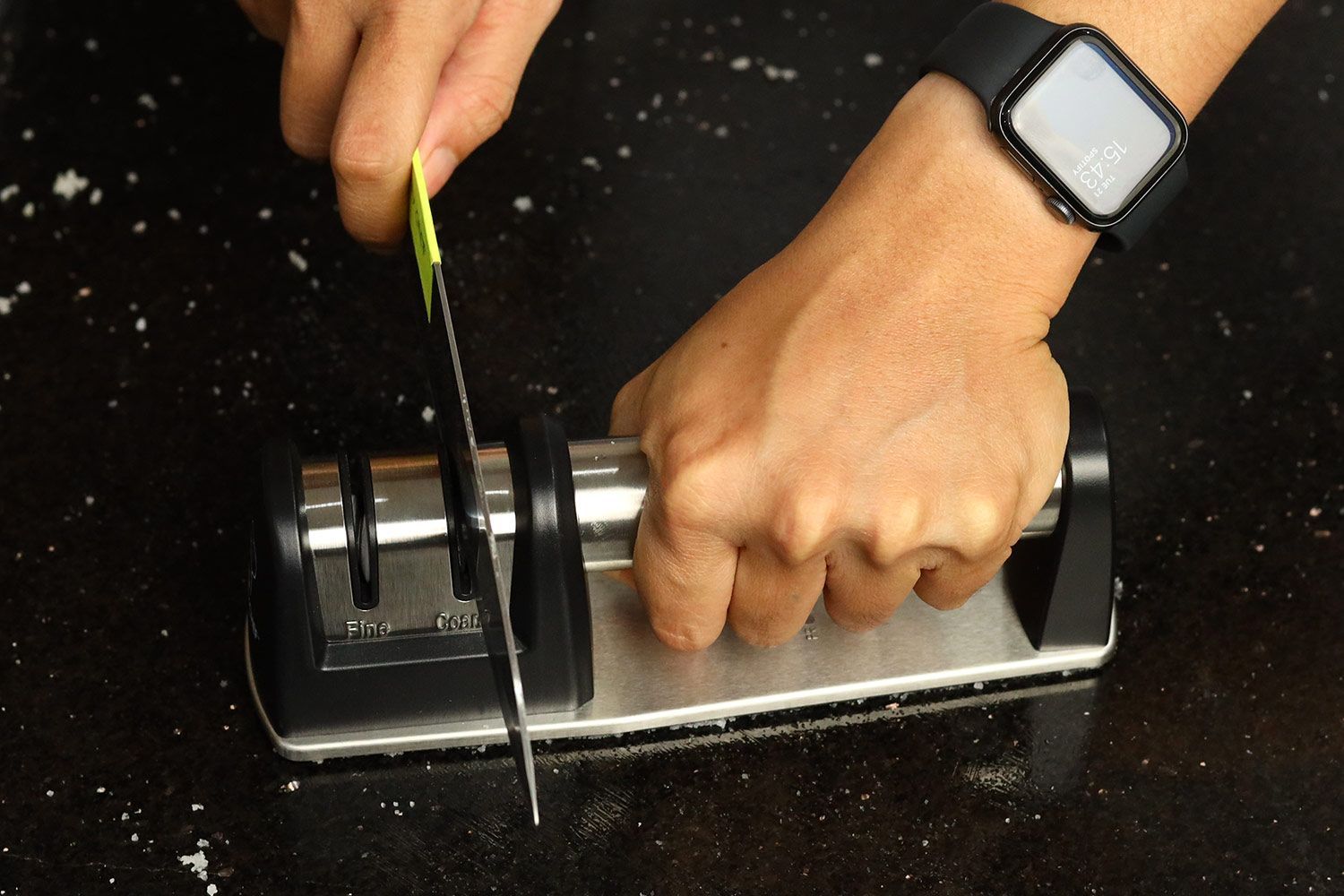
While the ‘anti-slip’ pad was barely effective on a spotless countertop, it was useless on one with oil and salt on it. That being said, the sharpening session was still manageable thanks to the unit’s generous footprint and modest height. Again, it seems to fare better when your grip is not too tight.